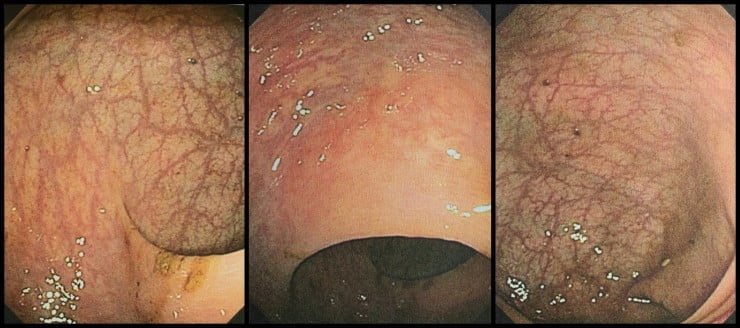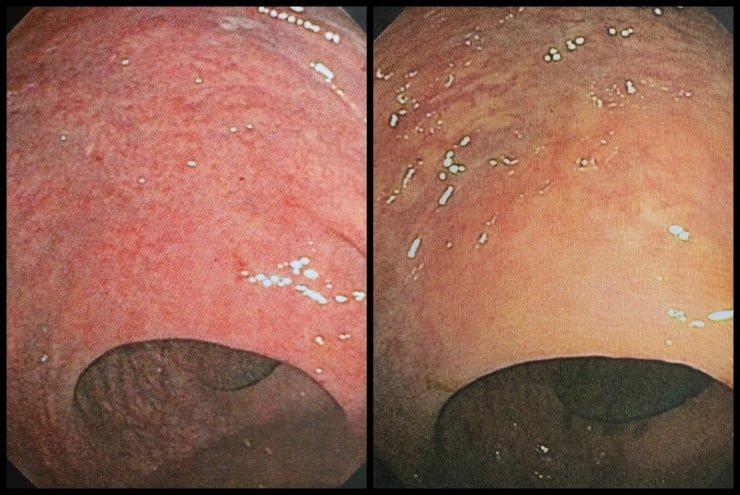My Ulcerative Colitis Is in Remission
As at July 15, 2020, my ulcerative colitis was in clinical, endoscopic, and histologic remission.
My gastroenterologist diagnosed me with ulcerative colitis in March 2018.
Last month (June 2020), I described how I was free of any symptoms or clinical signs of the disease.
Since my diagnosis, periodic blood tests measuring inflammatory markers (C-reactive protein and erythrocyte sedimentation rate) have been within their normal reference ranges.
On July 15, 2020 (a little over a fortnight ago), I underwent a follow-up colonoscopy. Other than internal hemorrhoids, a problem I’ve known to have for nearly three decades, this colonoscopy was normal, i.e., they saw no specific pathology in my rectum or any other part of my colon.
Colonoscopy on July 15, 2020
Below are some photos of my distal rectum during the colonoscopy.

The two photographs below compare the proctitis detected on colonoscopy in February 2018 (left) with the normal mucosa seen on July 15, 2020 (right).

Histopathology of Biopsies
They took mucosal biopsies from my terminal ileum, caecum, transverse colon, and rectum during the colonoscopy. Histopathological examination of these biopsies, the report of which I received only yesterday (July 29, 2020), showed no significant pathology.
Conclusion and Change of Treatment Plan
The obvious conclusion is that my ulcerative colitis is in clinical, endoscopic, and histologic remission.
My gastroenterologist reduced my dose of mesalazine (mesalamine, 5-aminosalicylic acid (5-ASA)) to 1 gram twice a day (therefore 2 grams per day).
Provided there is no relapse, I’ll take 2 grams of mesalazine daily for the next three months and have some blood tests (complete blood count, C-reactive protein, erythrocyte sedimentation rate) done in mid-October 2020.
If my disease remains in clinical remission and the lab results are normal, I expect my dosage of mesalazine to be reduced further to 500 mg twice daily, i.e., 1 gram per day.
I’m delighted with the results of the investigations performed this month because they show endoscopic and histologic remission of my ulcerative colitis, which accompanies my clinical remission. I’m also pleased that my medications now follow a (more convenient) twice daily regimen instead of the thrice-daily regimen I was on until yesterday.